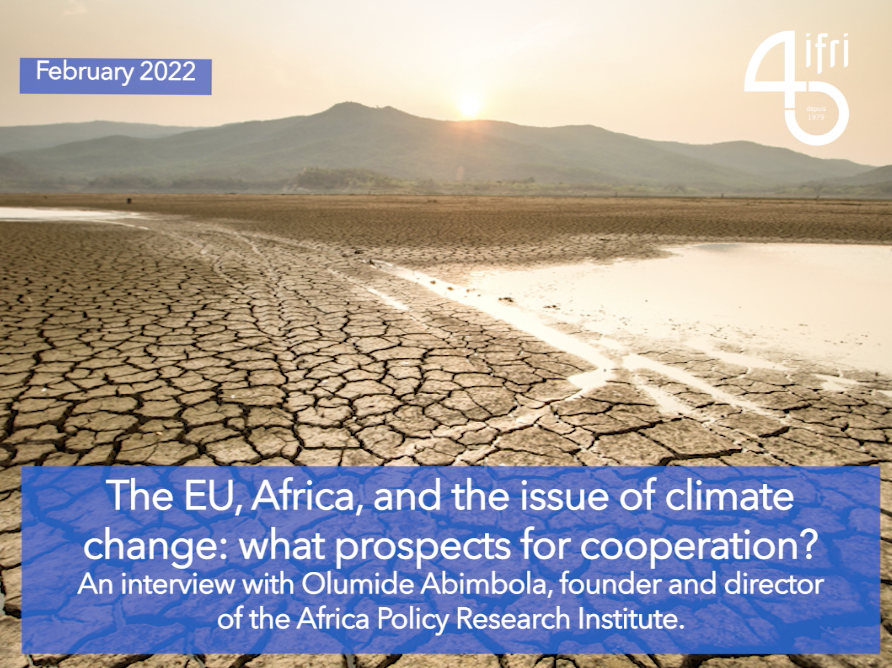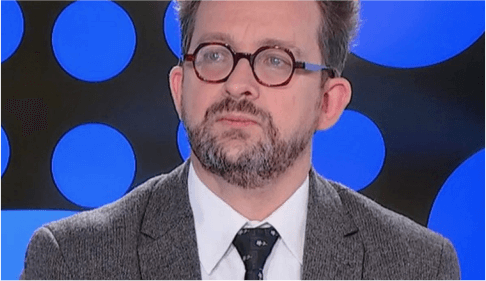Watch and listen
Our research fellows intervene in the public debate and bring their light to the French and international media. Find all their media interventions.

The War in Ukraine and Rising Global Tensions: A Southeast Asian Perspective (Replay)
A debate with Simon Tay, Chairman of the Singapore Institute of International Affairs (SIIA), Associate Professor at the National University of Singapore, and Singapore’s Ambassador to Greece.
China's power: views from Kevin Rudd, former Prime Minister of Australia
An interview with Kevin Rudd, former Prime Minister of Australia.
The EU’s Power System by 2030: Navigating the Crisis and Keeping the Decarbonization Cap (video)
Replay from Ifri's conference at the European Parliament in Brussels (October 11, 2022). The combination of the climate crisis and Russia’s war in Ukraine makes the case for a much faster transition to a fully decarbonized power system.
Interview with David Miliband, President and CEO of the International Rescue Committee
Can you describe the humanitarian impact of the war in Ukraine, in Europe, including with regards to displacement, and beyond the outside of Europe?
Are Marine Protected Areas a relevant tool for the Pacific?
Marine protected areas (MPAs) offer a solution for countries in the region to manage their maritime space. Access to scientific data is required to set MDA.
Radicalization prevention and judicial response to terrorism
An interview with Marc Hecker, Ifri's Director of Research and Communications.
Neutrality and non-alignment after the Russian Invasion of Ukraine
The Russian invasion of Ukraine has reignited discussions about the status of neutrality and non-alignment in several parts of Europe.
Toward a New European Security Order? Foreign Policy Shifts in Response to Russia’s War on Ukraine (webinar)
This online discussion takes stock of how Russia’s invasion of Ukraine has changed national foreign and security policies and how these shifts affect Europe’s security architecture.
Japan's upgraded economic security strategy
An interview with Kazuto SUZUKI, Professor, Graduate School of Public Policy, University of Tokyo.
Building European Strategic Autonomy vs. Turkish Strategic Depth: Macron's Diplomatic Gamble.
This week, Ifri, in partnership with CATS Network, is launching a series of five videos on the tensions in the Eastern Mediterranean, seen through the prism of the geopolitical rivalry between France and Turkey.

The EU, Africa, and the Issue of Climate Change: What Prospects for Cooperation? Video with Olumide Abimbola
An interview with Olumide Abimbola, founder and director of the Africa Policy Research Institute (APRI).
The CPTPP and UK’s accession: What global implications?
The UK is the first State which formally applied to join the CPTPP. Its bid was accepted in early June 2021.
Video: How Strong is the Taiwan-US-Japan Triangle?
The United States is the linchpin of Taiwan’s security. Under Donald Trump’s presidency, as tensions with the People’s Republic of China grew, the US increasingly took steps to signal ever more clearly its commitment to supporting and defending Taiwan, a trend that seems to have continued somewhat under Joe Biden’s leadership. In recent months, Tokyo has also become more visibly engaged in declaring its commitment to ensuring peace and stability in the Taiwan Strait. This webinar will explore these recent trends, analyse the strength of ties between these three actors, and the implications for the future of stability in the Taiwan Strait and for regional and global peace and security more broadly.
Support independent French research
Ifri, a foundation recognized as being of public utility, relies largely on private donors – companies and individuals – to guarantee its sustainability and intellectual independence. Through their funding, donors help maintain the Institute's position among the world's leading think tanks. By benefiting from an internationally recognized network and expertise, donors refine their understanding of geopolitical risk and its consequences on global politics and the economy. In 2025, Ifri supports more than 80 French and foreign companies and organizations.











